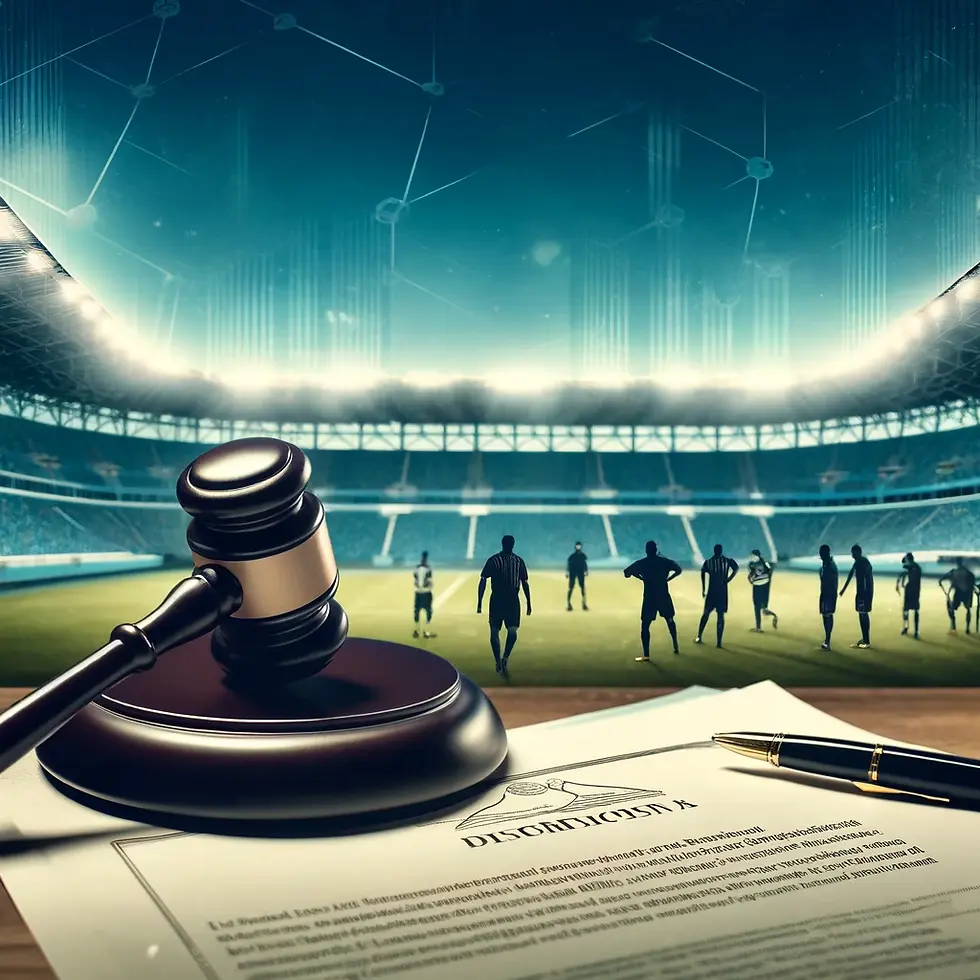The Basketball Arbitral Tribunal (BAT): A Comprehensive Guide to the Updated Arbitration Rules
- niloeffori
- Jun 11, 2024
- 4 min read
Introduction
The Fédération Internationale de Basketball (FIBA) has made significant strides in improving the resolution of disputes within the basketball community through the establishment of the Basketball Arbitral Tribunal (BAT). Effective from February 1, 2024, the updated BAT Arbitration Rules introduce several key changes and clarifications designed to enhance the efficiency, fairness, and accessibility of the arbitration process. Here’s a detailed breakdown of the essential elements of the new BAT Arbitration Rules.
The Process
The BAT, created by FIBA, offers an efficient and effective means of resolving disputes within the basketball world. It operates under the principles of simplicity, speed, and cost-effectiveness. These Rules apply whenever parties have agreed in writing to submit their disputes to the BAT, provided that FIBA and its divisions are not directly involved. Importantly, the BAT arbitrator has the authority to determine the appropriateness of arbitration for any dispute and to rule on their own jurisdiction.
The seat of BAT and all arbitral proceedings is Geneva, Switzerland, ensuring a neutral location. The arbitration process is governed by Swiss law, specifically Chapter 12 of the Swiss Act on Private International Law (PILA), and BAT's own rules, ensuring a neutral and legally robust environment. English is the working language, though documents in other languages must be accompanied by certified English translations unless otherwise decided by the Arbitrator.
To initiate arbitration, a Request for Arbitration must be filed with the BAT Secretariat via email. This request must include detailed information about the parties, a statement of facts, legal arguments, the request for relief, and any supporting evidence. A non-reimbursable handling fee must be paid to proceed. The BAT Secretariat sets an advance on costs, which both parties must pay equally unless otherwise decided by the Arbitrator. The arbitration will not proceed until the full amount is received.
All disputes are decided by a single arbitrator appointed by the BAT President. Arbitrators must declare their independence and can be challenged if there are legitimate doubts about their impartiality. Neither FIBA, the BAT President, nor arbitrators can be held liable for acts or omissions in connection with BAT proceedings, except in cases of gross negligence or wilful misconduct.
All communications with BAT must be conducted via email. The parties are responsible for ensuring that the BAT Secretariat has their correct contact details. If delivery cannot be effected, the Arbitrator may designate a third party to receive communications on behalf of the non-responsive party.
The Arbitrator sets specific time limits for submissions, which can be extended at their discretion. Failure to comply with these time limits without a valid reason can result in the waiver of the right to object. The Arbitrator determines whether further submissions are necessary after the initial Request for Arbitration and the Answer. Procedural orders may be issued to facilitate the arbitration process. Hearings are generally not held unless deemed necessary by the Arbitrator. They can be conducted via telephone or video conference, and the costs related to witness testimonies are borne by the parties.
The Arbitrator issues a written, dated, and signed award that includes reasons, unless the sum in dispute is below EUR 50,000, in which case an award without reasons may be issued unless otherwise requested. The BAT President reviews drafts to ensure consistency in case law. BAT awards are final and binding upon communication to the parties and are enforceable under the New York Convention, making them self-executable in signatory countries. Non-compliance with BAT awards can lead to sanctions under FIBA's regulations, such as fines, withdrawal of licenses, and bans on international transfers.
A non-reimbursable handling fee is required to file a Request for Arbitration, with the amount depending on the sum in dispute. At the end of the proceedings, the BAT President determines the final arbitration costs, including contributions to the BAT Fund, fees, and any abeyance fees paid. The award typically includes a contribution towards the prevailing party’s legal fees and other reasonable expenses, based on the relief granted compared to the relief sought, as well as the parties' conduct and financial resources.
The BAT maintains a fund to support the costs of arbitration, particularly in cases terminated before any advance on costs is paid. The BAT President can allocate these funds to enhance the efficiency of BAT dispute resolution.
The Payment Order Procedure is an expedited process for monetary claims up to EUR 15,000. A single claimant can file a Payment Order Request through the BAT’s online platform, provided the procedure has been agreed upon by the parties. Upon receipt of a Payment Order Request, the BAT President may issue a Provisional Payment Order, which can become a Final Payment Order if the respondent does not object or fails to pay the handling fee. Final Payment Orders have the same binding effect as arbitral awards. If an objection is raised and the necessary fees are paid, the BAT Secretariat will proceed with a regular arbitration process. The Payment Order Procedure ensures smaller claims are handled efficiently while providing a pathway to full arbitration if required.
Final Considerations
The updated BAT Arbitration Rules reflect FIBA’s commitment to providing a fair, efficient, and specialized arbitration process for resolving basketball-related disputes. By offering a clear, streamlined procedure, the BAT ensures that parties can resolve conflicts swiftly and effectively, maintaining the integrity and professionalism of basketball on a global scale. The BAT continues to innovate and refine its processes, ensuring that basketball-related disputes are handled with the utmost professionalism and efficiency, setting a new benchmark for sports arbitration globally.


Comments